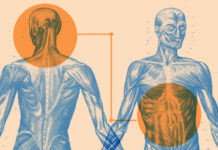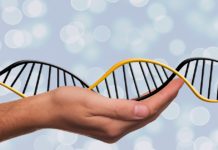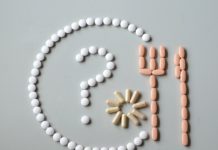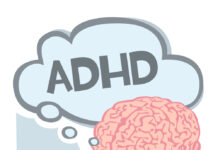Learning to Speak Psychotic
One of the biggest barriers that people who are “psychotic” face is one of communication: other people often have trouble understanding what they’re talking about. The way they describe their experience and their ideas are simply foreign to most people. This lack of clear communication is what gets them labelled as “psychotic” in the first place, and thus it leads to a breakdown between the “psychotic” and the rest of society. This is a loss to both groups.
Combining Art Therapy and Mindfulness for Refugees
A new article, published in The Arts in Psychotherapy, describes the ways art therapy and mindfulness have benefitted refugees and asylum seekers in Hong Kong.
In Memory of Julie Greene
With deep regret, Mad in America announces another loss in our contributor community. Julie C. Greene, writer and antipsychiatry advocate, lost her battle with kidney disease on November 29 at her home in Beaver Falls, Pennsylvania. Julie had been an MIA blogger since 2014, including several pieces on the dangers of lithium.
Do Antipsychotics Worsen Long-term Schizophrenia Outcomes? Martin Harrow Explores the Question.
Martin Harrow and Thomas Jobe have a new article coming out in Schizophrenia Bulletin that I wish would be read by everyone in our society with an interest in “mental health.” Harrow and Jobe, who conducted the best study of long-term schizophrenia outcomes that has ever been done, do not present new data in this article, but rather discuss the central question raised by their research: Does long-term treatment of schizophrenia with antipsychotic medications facilitate recovery? Or does it hinder it?
What Happened When I Went Off Meds and Onto Nutrients
I remember clearly thinking, “I’m done. I’m not putting myself through this again.” I wasn’t going to settle for the side effects of a marginally better than placebo treatment again. Here is a brief look into my rollercoaster journey of recovery, returning to work, having my trauma re-triggered, finding a way through, and finally living well.
Harrow + Wunderink + Open Dialogue = An Evidence-based Mandate for A New Standard...
In the wake of the new study by Dutch researcher Lex Wunderink, it is time for psychiatry to do the right thing and acknowledge that, if it wants to do best by its patients, it must change its protocols for using antipsychotics. The current standard of care, which—in practice—involves continual use of antipsychotics for all patients diagnosed with a psychotic disorder, clearly reduces the opportunity for long-term functional recovery.
Randomized Controlled Trials of Psychiatric Drugs Tell of Harm Done
The most important data in an RCT is not whether the drug provides a statistically significant benefit over placebo. The most important data is the “number needed to treat” calculation (NNT). For the person considering taking an antidepressant or an antipsychotic, the NNT data provides the “math” needed to weigh the potential benefit of taking the drug against the potential harm of doing so.
Lithium: A Survivor’s Guide for Parents
When I was a young adult, I was misdiagnosed with bipolar disorder and placed on lithium. I am 61 years old now, living on the edge of end-stage kidney disease. If I could undo everything, by all means, I would not have taken this drug. It is not safe for anyone at any age.
APA: Drop the Stigmatizing Term “Schizophrenia”
I believe that the American Psychiatric Association and the World Health Organization should follow the lead of several countries that have already retired the term "schizophrenia" from their vocabularies. The time is now to drop this stigmatizing, hope-disabling, scientifically controversial term.
Transcranial Magnetic Stimulation No Better Than Placebo for Treatment-Resistant Depression
A new study in JAMA Psychiatry found that transcranial magnetic stimulation was no better than placebo for treatment-resistant depression.
The Day I Became Schizophrenic
Schizophrenia, to me, is nothing more than a word. All it really means is that you experience psychosis on a regular enough basis that it’s a factor in your life. And that you actually do, as the word “schizophrenia” indicates, have a mind that you share with some sort of outside presence.
New Evidence for Brain-Gut Link in Depression and Quality of Life
The first ever population-level study of the brain-gut connection in humans finds evidence for a link between gut bacteria and mental health.
Epilepsy Drugs Can Induce Psychosis in Some Patients, Study Finds
In this month’s issue of the journal Brain a new study investigates whether the drugs prescribed to control seizures can increase the risk of...
German Psychologists Declare “the Drugs Don’t Work”
Jürgen Margraf and Silvia Schneider, both well-known psychologists at the University of Bochum in Germany, claim that psychotropic drugs are no solution to mental...
Helping People to Constructively Engage with Voices
When voices are engaged with creativity and compassion, the result can be a positive change in the relationship with voices, leading to much greater peace of mind. But how can people learn how to facilitate this? A new video series by Charlie Heriot-Maitland, Rufus May and Elisabeth Svanholmer offers some practical ideas.
“Silent” Forms of Child Abuse Strongly Tied to Depression
Psychological abuse and childhood neglect are strongly associated with depression in adulthood, according to a meta-analysis of childhood trauma and depression published in this month’s issue of the Journal of Affective Disorders. “The findings clearly highlight the potential impact of the more ‘silent’ types of childhood maltreatment (other than physical and sexual abuse) on the development of depression,” the researchers conclude.
It is Time to Abandon the Candidate-Gene Approach to Depression
The candidate-gene approach to depression goes unsupported and is likely based on bad science, new research finds.
Treating Metabolic Conditions May Resolve Some Depressive Symptoms
New research suggests that treatable metabolic abnormalities underlie some treatment-resistant cases of depression—and treating the metabolic condition has the possibility of dramatically reducing depressive symptoms
Antidepressant Use Linked to Longer, More Frequent Psychiatric Rehospitalization
New study finds that antidepressants may negatively impact recovery after psychiatric hospitalization.
Antidepressants Actually Reduce Serotonin Levels
Common scientific beliefs about serotonin levels in depression and how antidepressants act on the brain appear to be completely backwards.
Scientists Clarify Risks of Augmenting with Antipsychotic Medications for Depression
The researchers found that while antipsychotic drugs may be slightly more effective than alternative antidepressants, they come with a much higher side effect burden.
Lancet Psychiatry’s Controversial ADHD Study: Errors, Criticism, and Responses
Amid calls for a retraction, Lancet Psychiatry publishes articles criticizing the original finding and a response from the authors.
Still Mistreating the Elderly with Psychiatric Drugs: Benzodiazepines
Despite safety concerns, a new study reveals that there has been no change in the use of benzodiazepines in the elderly from 2001 to 2010.
NICE Guideline Update Acknowledges Severe Antidepressant Withdrawal
A new update to the NICE guideline for depression suggests providers discuss long-term, severe antidepressant withdrawal symptoms.
Study Finds Improved Functioning for ‘Schizophrenia’ Without Antipsychotics
Long-term treatment with antipsychotic drugs is currently considered the standard treatment for patients diagnosed with ‘schizophrenia.’ A new study challenges this practice, however. The...




























